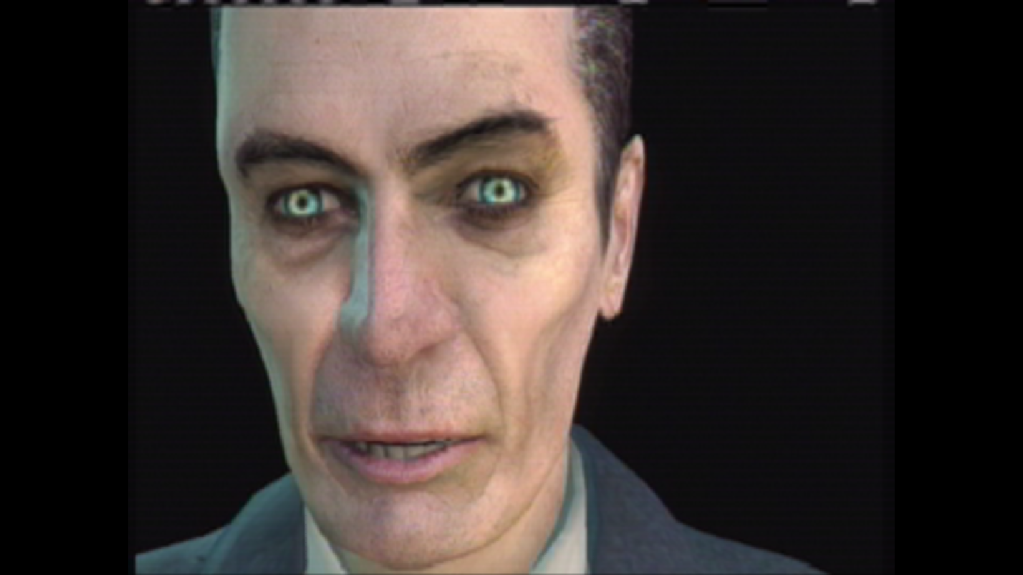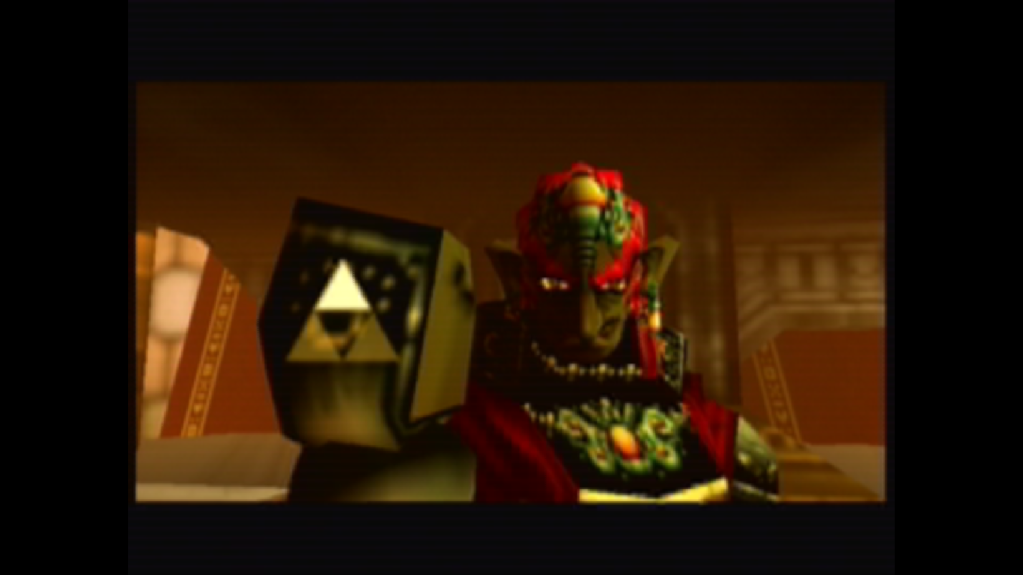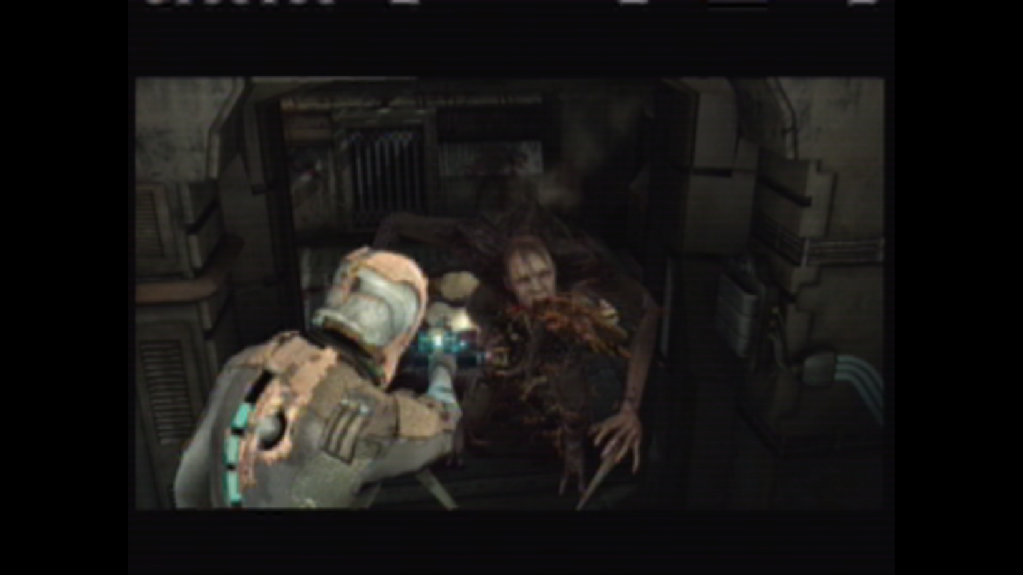Valve’s Half-Life shattered my adolescent brain even three years after its release when I first played it. The narrative was, and still is, as engaging as it is mysterious and thought-provoking. Half-Life succeeded in breaking the fourth wall without violating the suspension of disbelief, and all the credit is due to the mustachioed mute, Gordon Freeman.
Since the advent of the 6th generation of home consoles, ushered in by Sony’s PlayStation 2 in 2000, storytelling in videogames has become much more sophisticated. Along with gorgeous cutscenes and dramatic scripts, many characters have been given a voice for their every line of dialogue. Advances in technology, the industry’s escalating popularity, and greater budgets have paved the way for lavish production values which include voice-acting and lip-synching. New intellectual properties such as Mass Effect and recent installments of classic franchises alike have been embracing all the possibilities offered by technological advances.
A handful of developers, however, have been abiding by the storytelling techniques introduced before budgets and media storage permitted fully-voiced and narrated scripts. As indicated by the comments and feedback provided by irate and impatient gamers on media outlets and forums, much of the gaming community would like to see these methods of narration go the way of the cartridge. Vocal, outspoken protagonists and avatars have, by many consumers, been adopted as an industry standard.
The progression of technology has allowed new methods of storytelling, but these are simply an option for developers and producers to pursue. The silent protagonist is a narrative mechanic that is unique to the medium of videogames, which is why Link, Gordon Freeman, and others have remained mute while so much of the gaming landscape has begun speaking up. Silent protagonists allow players to evaluate situations and scenarios free from the influence of an outspoken protagonist, and this satisfies a unique storytelling niche.
 |
| Such a cryptic opening for Half-Life 2 is made possible by an uninterrupted monologue. |
Gordon Freeman’s fateful interview with the enigmatic G-Man at the end of Half-Life would not carry the same weight if Gordon Freeman had been able to interrupt the monologue with questions. Anticipating closure and resolve, the player chugs along through the game’s narrative across earthly and alien landscapes, all the while catching occasional glimpses of their stalker. The player is left to wonder his motives and the purpose of his scheme when the credits begin rolling, even after they had been directly and personally addressed by the enigmatic agent. A finale as discrete as entering the portal on the tram after Gordon’s sinister encounter leaves much for players to question, and is conducive to producing the thought-provocation and speculation that builds strong gaming communities.
While playing through The Legend of Zelda: Ocarina of Time, players are free to feel naturally all the emotions elicited by the game. Players were able to witness the majesty of Lake Hylia, and feel the stress of scaling the erupting Death Mountain without a word of observation from Link. Players felt dread penetrate their consciousness following their emergence from the Temple of Time, as well as a violated sense of justice at Lon Lon Ranch. We felt relief at the sight of Princess Ruto after learning her entire race had been extinguished, and we were compelled to exact vengeance on Ganondorf at the top of his sinister castle. All these moments and more were made memorable by provision of context, a strong cast of Non-Playable Characters (NPCs), unique landscapes, and a driving sense of duty. From outwitting the Kokiri bully Milo to driving the Master Sword into the demon Ganon’s ugly face, players completed a grand and emotive journey without ever having a feeling suggested by their avatar.
 |
| In no way could a dialogue have made this climax more exciting. |
An additional virtue of Link’s passive demeanor is that players are able to impart elements of their own personality into the game. Link is the everyday man summoned by fate and sent on an extraordinary journey. He connects with the player from the get-go, because at one time or another everyone has been “the kid without a fairy.” Whether playground alienations or the first day at university are fresh in a player’s memory, everyone can sympathize with “Mr. No-Fairy.” Additionally, everyone has had a fantasy or two of being in the world for a special and particular reason. Inspired by real-life heroes like doctors, generals, parents and entertainers, everyone has a childhood fantasy hiding within them, and Link’s Hylian blood ties him to a grand destiny. By remaining silent through the entire adventure, Link remains every player’s inner hero; our fantasies and inspirations he vicariously fulfills.
Dead Space provided a very different experience, but used similar mechanics. Players assumed the role of Isaac Clarke, an engineer tasked with repairing the USG Ishimura; a gigantic space-faring vessel used for mining and refining ores obtained from planets. However, once aboard the ship, inspections and repairs took a backseat to survival and escape, as it was overrun with a hive-minded alien colony. The dark, claustrophobic interior of the planet-cracking vessel took players on a tour of terrors as they scrambled to escape. Players experienced fear and panic under an onslaught of hordes of necromorphs; the flesh-hungry, reanimated corpses of those aboard the Ishimura who sought only the destruction of Isaac Clarke. The few remaining humans on the ship provided no solace as the brainwashed pawns of a greater conspiracy.
 |
| Now is not the time for quips and jokes... |
From fighting off alien hordes with a dwindling supply of munitions to watching their fellow man’s gruesome sacrifice during a malicious ritual, players needed no suggestions to be frightened. While some action-adventure games employ occasional comic relief with their protagonist’s one-liners and witty quips, Dead Space allows the oppressive atmosphere to take full-effect over the player. Orders given to the player by desperate, dying and traitorous squadmates only perpetuated the feeling of hopelessness and dread. Through the whole game, players are not once suggested by their avatar to feel scared, because the ambiance and plot do the job so effectively.
These points are not to suggest that silent protagonists offer a better gaming experience by default. Intricate and memorable plots witnessed in franchises such as Mass Effect, Metal Gear Solid and Final Fantasy would only be possible with an active protagonist propelling the action along. However, the silent protagonist is a narrative mechanic that is unique to the medium of videogames. No movie, book or musical will ever be able to issue orders, inquiries and pleas directly to the player like Alyx Vance and Princess Zelda have. Avatars who actively engage the machines of fate have the potential to make a more cinematic experience out of a game, at the cost of ushering the player into an observer’s role, whereas silent ones invite the player directly into their form. I hope that Link, Gordon Freeman and new characters will continue to invite me into their world even as available technology would permit them to speak for themselves.
No comments:
Post a Comment